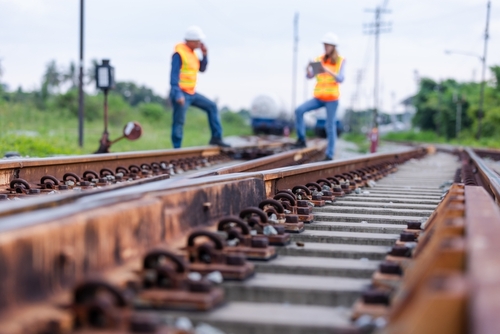
Engineers at Kansas State University have received a more than $300,000 Federal Railroad Administration grant to fund the development of non-contact technology for in-track monitoring of rail stress in continuously welded steel railroad rail.
“Currently, no proven non-contact method exists for accurately assessing and monitoring the state of rail stress,” said B. Terry Beck, Kansas State University professor in the Alan Levin Department of Mechanical and Nuclear Engineering in the Carl R. Ice College of Engineering. “The proposed method is based on existing robust field-hardened non-contact strain-measurement technology.”
Excessive compressive stresses can cause structural problems that can worsen when the rail is subjected to train loading. Issues are caused by excessive tensile stresses induced by extreme cold temperatures, that result in rail breakage, or by the restraint of rail on hot days, that result in track buckling. A method to detect and monitor rail stress levels would prevent potential derailments caused by stress-related track issues.
Researchers will monitor rail neutral temperature and rail stress through simultaneous non-contact measurement of rail axial displacement and rail temperature.
In cooperation with BNSF Railway, researchers will demonstrate the technology. One test will be conducted in the field on continuously welded steel railroad rail while another will be conducted in a campus laboratory.